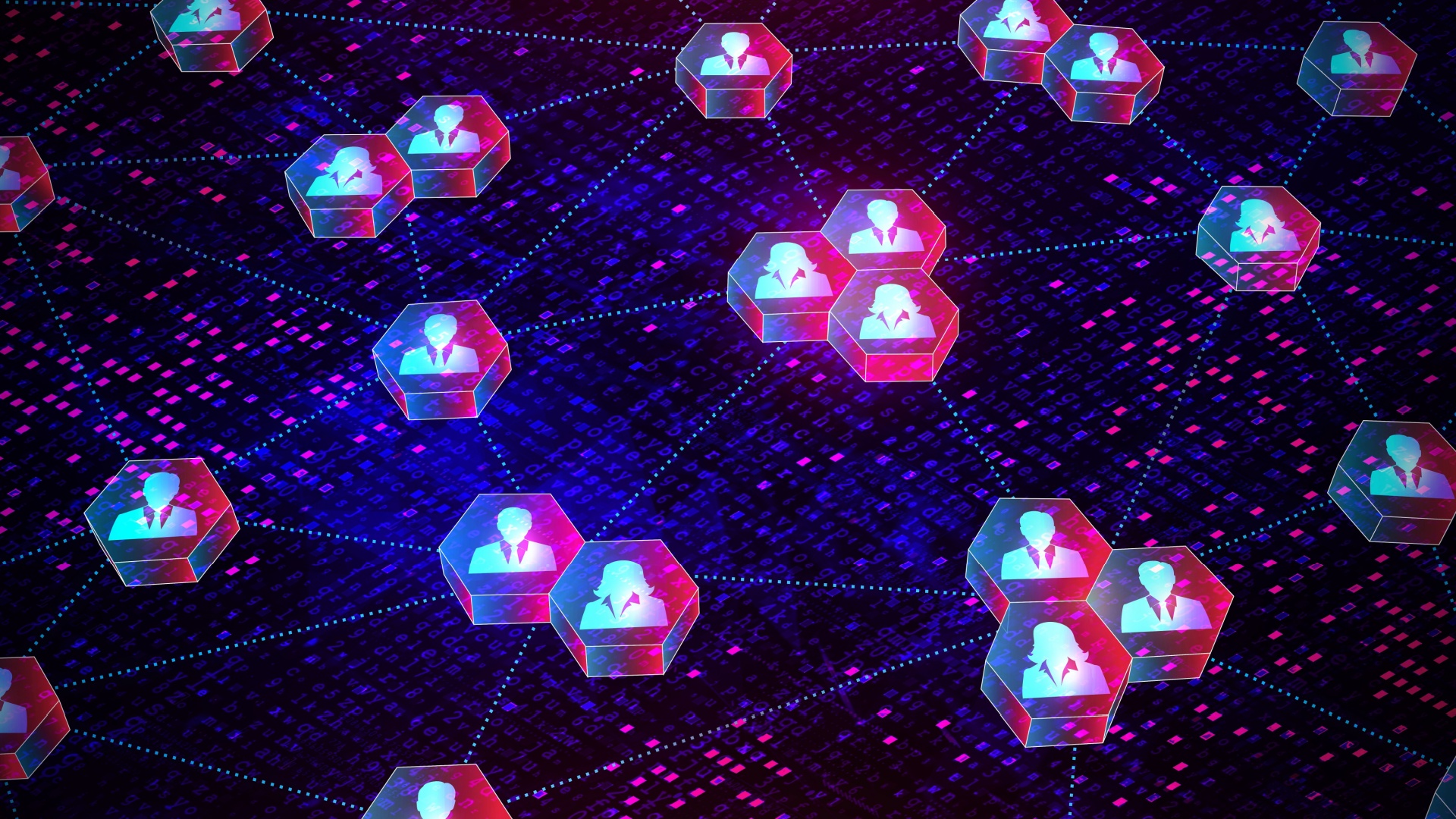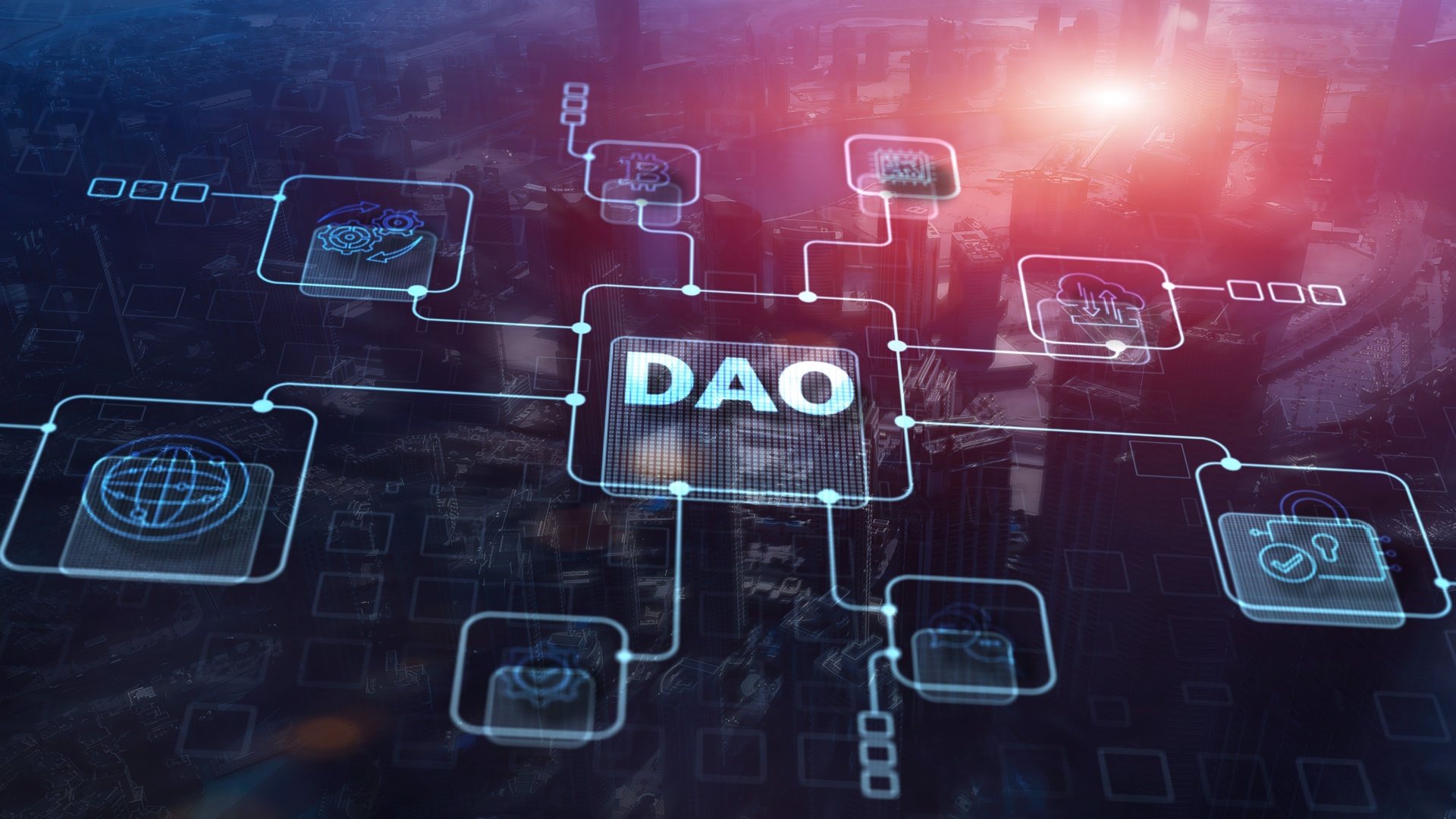Decentralized Autonomous Organizations (DAOs) are a relatively new concept in the world of technology and business, brought to life through the advancement of blockchain technology and cryptocurrencies. DAOs are digital entities managed by smart contracts. They operate on the principles of decentralization, meaning they lack centralized leadership. Instead, all members of the organization make collective decisions, creating a more democratic and transparent governance environment.
Key Principles of DAO Functioning
DAOs operate based on smart contracts—self-executing programs that automatically fulfill contract terms encoded within them, eliminating the need for intermediaries. These smart contracts are deployed on a blockchain, ensuring their immutability and accessibility to all members. Each DAO member has the right to vote and propose changes, which are then discussed and subjected to a vote. A decision is implemented if it receives sufficient support from participants, which allows avoiding centralized control.
One of the essential features of DAOs is the use of tokens. Members acquire tokens that grant them voting rights within the organization. The more tokens a member holds, the greater their influence on decisions. This system allows active participants who invest more resources into the organization to influence its strategy and direction. These mechanisms also foster a more responsible environment where members are motivated to ensure the organization’s success.
Advantages and Challenges of DAOs
DAOs offer numerous advantages. Firstly, they provide a high level of transparency and accountability since all transactions and decisions are recorded on the blockchain and are publicly verifiable. Secondly, decentralization prevents scenarios where a single individual or a group can abuse power, making the organization more resistant to corruption and manipulation. Thirdly, DAOs are often more flexible and can quickly adapt to market changes, as decisions are made collectively and efficiently.
However, despite their advantages, DAOs face certain challenges. One major issue is their legal status. Since DAOs lack a physical location and often operate in legal grey areas, they may encounter regulatory difficulties. Additionally, voting mechanisms can be subject to manipulation if large participants hold a disproportionately large number of tokens. Lastly, as technology-dependent entities, DAOs are vulnerable to hacking and other technical failures.
Nonetheless, it is worth exploring several successful examples of DAOs that have showcased their potential and capabilities.
MakerDAO
One of the most well-known examples of a DAO is MakerDAO, which manages the stable currency DAI. DAI is a decentralized stablecoin pegged to the US dollar, enabling users to earn, borrow, and trade without relying on traditional banking institutions. MakerDAO operates on Ethereum using smart contracts. Participants can deposit various crypto assets into the system as collateral to issue DAI. Governance is conducted via MKR tokens, allowing holders to vote on key protocol changes, such as adjustments to collateral rates and risk parameters. MakerDAO has demonstrated how DAOs can effectively manage complex financial instruments while ensuring stability and transparency.
Compound
Compound is a decentralized protocol for lending and borrowing cryptocurrencies. It allows users to earn interest on their crypto assets by lending them to others. Operating via smart contracts, Compound is managed through a DAO where holders of COMP tokens have voting rights on protocol governance. Participants can propose system changes, such as adding new assets or adjusting interest rates. Compound has gained popularity due to its simplicity, transparency, and integration with other DeFi protocols, making it a crucial component of the decentralized finance ecosystem.
Aragon
Aragon is a platform designed for creating and managing decentralized autonomous organizations. It provides tools to establish DAOs that can manage assets, make decisions, and organize voting processes. Aragon allows the creation of customized organizations with unique rules and governance processes, making it ideal for a variety of projects and communities. The platform is managed through ANT tokens, enabling holders to vote and shape the future of the Aragon ecosystem. This project has become an essential tool for those seeking to launch their own DAO with minimal costs and without extensive technical knowledge.
Undoubtedly, DAOs have proven their ability to create innovative solutions for governance and collaboration in the digital space. The examples above illustrate how DAOs can operate effectively, ensuring transparency, democracy, and resilience. These organizations are not only transforming traditional business models but also redefining the concepts of governance and cooperation in the digital age. As technologies and regulatory frameworks evolve, DAOs are expected to continue expanding their reach and influencing various areas of life.
Steps to Invest in a DAO
Step 1: Research the Project. Before investing, conduct thorough research. Review the project's whitepaper, the development team, the technology behind the DAO, and the community. Ensure the project has a clear roadmap and offers tangible value.
Step 2: Choose the Right DAO. There are many DAOs, each with unique goals and mechanisms. Select one that aligns with your interests and investment objectives.
Step 3: Create a Wallet. To participate in a DAO, you'll need a cryptocurrency wallet that supports ERC-20 tokens (if the DAO operates on Ethereum). Ensure your wallet is secure and that you've stored all necessary keys safely.
Step 4: Acquire Tokens. Most DAOs use their own tokens for governance and voting. These tokens can be purchased on cryptocurrency exchanges such as Binance or Coinbase. The purchasing process may vary depending on the specific token and platform.
Step 5: Participate in Voting and Governance. Once you’ve acquired tokens, you can take part in voting and make proposals. This increases your engagement with the project and gives you an opportunity to shape its future.
Step 6: Monitor and Manage Risks. As with any investment, keep track of your portfolio and stay prepared for changes. The cryptocurrency market is highly volatile, and DAO token prices can fluctuate significantly. Set clear goals and limits for yourself to minimize potential losses.
Risks Associated With Investing in DAOs
While investing in DAOs can be profitable, it comes with certain risks:
- Vulnerabilities in smart contracts can lead to the loss of funds. Always research the project's security measures and code.
- Many countries have yet to establish a clear regulatory status for DAOs, and legal changes could impact their operations and your investment.
- DAO token prices can fluctuate significantly, potentially leading to substantial losses.
- Large token holders (so-called "whales") may influence voting, leading to decisions that do not consider the interests of smaller participants.
As with any investment, it’s essential to stay informed, be prepared for risks, and diversify your portfolio. In the rapidly evolving world of decentralized technologies, DAOs offer many opportunities for those willing to explore this new and exciting space.
The Future of DAOs
Given all their advantages and challenges, it is safe to say that DAOs represent an intriguing direction for organizational development in the digital age. Their potential to transform traditional business models and introduce new forms of collaboration and governance positions them as a key element of the future. The advancement of legal frameworks and improvements in security technologies will help overcome current barriers, making DAOs more sustainable and widespread.
Thus, decentralized autonomous organizations open new horizons for governance and collaboration, offering unique solutions to contemporary economic and social challenges. They have the potential to become a powerful tool for creating fairer and more efficient systems, where every participant has the opportunity to shape the organization's future.




















